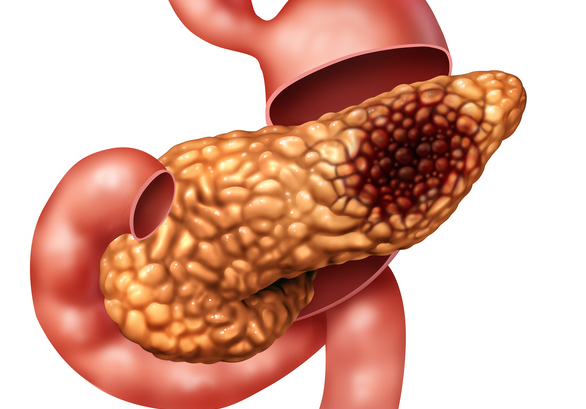
In a cancer as aggressive as pancreatic cancer, the roots of malignancy presumably run deep. Yet these roots are hard to trace. Nonetheless, persistent digging by scientists based at the Technical University of Munich (TUM) has uncovered mutational events that occur early in pancreatic cancer and explain how it eventually comes to grow and spread so quickly.
The TUM team, led by Prof. Dr. Roland Rad and Prof. Dr. Dieter Saur, identified specific gene amplifications that occur along various evolutionary pathways of pancreatic cancer. Essentially, certain genes are not only mutated, but also copied, driving both early tumorigenesis and metastasis of pancreatic ductal adenocarcinoma (PDAC).
Details findings appeared January 24 in the journal Nature, in an article entitled “Evolutionary Routes and KRAS Dosage Define Pancreatic Cancer Phenotypes.” As the article’s title indicates, the TUM scientists paid special attention to the KRAS gene. To study KRAS, an oncogene that plays a key role in cellular proliferation and is activated in 90% of all human pancreatic tumors, the TUM scientists developed “large cell culture resources of metastatic mouse PDAC.”
“Mouse models allow us to closely observe and experimentally review the extraordinarily complex processes of cancer development at the molecular level: from healthy cells to cancer precursors through to aggressive tumors and their spread to other organs,” Prof. Saur explained.
After inducing a KRAS mutation, the researchers also observed other mutations in what are known as tumor suppressor genes. In healthy cells, such protective genes prevent cancer from developing. Yet when such genes are mutated, the TUM researchers found, the mutated KRAS gene or other cancer genes may be amplified. Which genes are amplified appears to depend on which tumor suppressor genes are affected and to what degree their functions are impaired.
“Integration of cell culture genomes, transcriptomes and tumour phenotypes with functional studies and human data reveals additional widespread effects of oncogenic dosage variation on cell morphology and plasticity, histopathology, and clinical outcome, with the highest KrasMUT levels underlying aggressive undifferentiated phenotypes,” wrote the authors of the Nature article. “We also identify alternative oncogenic gains (Myc, Yap1, or Nfkb2), which collaborate with heterozygous KrasMUT in driving tumorigenesis, but have lower metastatic potential.”
Only after the cell's inbuilt protective mechanisms have been switched off and dosage amplification occurs does a tumor ultimately form. Which pathway the cell follows and which genes are involved then largely determine the characteristics of a pancreatic tumor.
“Mechanistically, different oncogenic gains and dosages evolve along distinct evolutionary routes, licensed by defined allelic states and/or combinations of hallmark tumour suppressor alterations (Cdkn2a, Trp53, Tgfβ-pathway),” the article’s authors continued. “Thus, evolutionary constraints and contingencies direct oncogenic dosage gain and variation along defined routes to drive the early progression of PDAC and shape its downstream biology.”
For the first time, the dosage amplification model could allow to identification of genetic patterns that explain a tumor's aggressiveness and metastasis.
“It therefore appears that the cell amplifies the growth signal due to the presence of extra gene copies. This model of dosage amplification during tumor development had not previously been considered,” noted Sebastian Müller, lead author of the study. “We also showed that as the number of mutant KRAS copies increases, the tumor's aggressiveness and ability to metastasize also increases.”
“We have indications that our discovery constitutes a fundamental principle in the development of tumors and plays an essential role in other cancers,” concluded Prof. Rad. “We're now investigating the extent to which these new insights into cancer biology can be used to develop new therapeutic strategies.”













